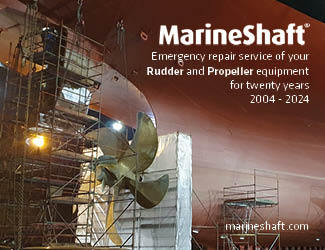Classification society DNV GL celebrated the recent merger and
150 years of company expertise with an Innovation Day in Hamburg
Looking back at »150 Years / Year One« the world’s largest class partner granted about 300 guests an insider’s view on[ds_preview] six pivotal strategic topics for the future. Now that the »honeymoon is over«, as a DNV GL officials called the time right after the merger of DNV and GL, the question how to prepare for the future is on top of the class society’s agenda more than ever.
The event was not only dedicated to technical and economic but also ethic aspects. The basic question was how to moderate growth and contribute to a safe and sustainable future. »We are looking back on 150 successful years and simultaneously are taking a look into the world of 2050,« Henrik O. Madsen, President and CEO of the DNV GL Group, said. Madsen referred to comprehensive studies which »show that environmental, economic and social sustainability is a central precondition for a safe and prosperous future«.
This glimpse of the future was directed by six topics predefined as essential: »The Future of Shipping«, »Adaptation to a Changing Climate«, »A Safe and Sustainable Future« (the core of the company’s sustainability strategy), »Arctic«, »Electrifying the Future«, and »From Technology to Transformation«. To analyse these drivers holistically, DNV GL engaged in a dialogue with the guests.
Since the company has grown beyond classic maritime business, the event also highlighted the class society’s recent development: One in four ships in the world is DNV GL classed while oil & gas and energy have grown to almost the same size as the maritime sector for the classification society. Business assurance evolved into another growth sector.
As for green technology, DNV GL presented growing expertise, too: 35% of all LNG terminals are verified or classed by DNV GL. Advisory services further contribute to the business. »Having all these facts and pieces, we have a strong platform,« Tor Svensen, CEO of DNV GL Maritime, said. The task was to present trends that affect all business. To do so, future topics were divided into eight sessions. Three were dedicated to »The Future of Shipping« with subdivisions »Safe Operations«/»Future Materials«, »Connected Ship«/»Advanced Ship Design«, »Low Carbon Energy«/»Efficient Shipping«, of which some are highlighted on the following pages.
Ambitious goals
Based on international climate objectives and best practice cases for safety in onshore industries, DNV GL identified three aims for shipping in 2050 compared to today: the reduction of fatalities at sea by 90%, the reduction of CO2 emissions of the global fleet by 60% and a maintaining or reduction of the freight cost level. This long-term horizon is also defined by the company’s comparatively strong commitment to research and development. »Inspire the industry is our objective,« Svensen said. While classification continues to be the core business, »to be relevant, we need to think about the future,« he added.
To get an even more reliable idea of what will actually matter in the future, DNV GL relied on contacts to business leaders and NGO’s worldwide. This process influenced the schedule of the Innovation Day. In between the sessions formed by expert lectures and discussions with the specialist audience there was much time for networking. The impulse of the Innovation Day, »sharing knowledge and doing it for free,« as a DNV GL spokesman said, allowed for a broad exchange of ideas while DNV GL send a strong message. The newly merged company also seized the opportunity to present contact persons and get a feedback from customers and business partners.
As a final chord, DNV GL moderated a panel discussion on the topic »Classification, Verification and Certification – Challenges in our Respective Industries«. To initiate this inhouse discussion, a video informed about trends – »the future is electric« it said, and »mitigating emissions is not enough«. Though the future was in focus, controversial up-to-date topics were also discussed like shale gas where DNV GL developed recommended practices. Floating wind farms off the Japanese coast or the evolution of »big data«, a massive interconnectivity change in data processing with ships linked to the Internet, were also high on the agenda.
SG/nis



















